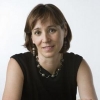Identifying mental health problems and Idioms of distress among older adult Identifying mental health problems and Idioms of distress among older adult internally displaced persons in Georgia

External link
Original Article
The global population of older adults (60 years and older) has been growing steadily; however, inadequate attention is given to the health needs of older persons, particularly within contexts of conflict and migration. This paper reports findings from the qualitative phase of an investigation assessing the mental health status of older adult internally displaced persons (IDPs) in Georgia, a country in the South Caucasus. The study aimed to assess community-wide social and health problems among older adult IDPs, with a focus on mental health problems and healthy functioning, as well as terminology used to describe these problems. Free-list interviews with older adult IDPs (n = 75) and key informant interviews with community members and service providers (n = 45) were conducted in 2010-2011 in three regions of Georgia: Tbilisi, Shida Kartli, and Samegrelo. Findings demonstrated that older IDPs experienced symptoms of distress that could be clustered into depression-like and anxiety-like syndromes. Participants described other psychosocial problems among older IDPs, including feelings of abandonment, isolation, and passivity, as well as conflicts in the family. All problems were linked with displacement-related experiences, such as difficulties with integration, grief, and war trauma. The expression of displacement-related problems was identified as an idiom of distress for this population. Older IDPs coped with these problems through social support mechanisms, including socializing, helping each other, working, and participating in the community. Key modalities for redressing older IDPs' psychosocial problems, improving quality of life, and achieving healthy 'aging-in-displacement' include: promoting social connectedness and community engagement, drawing on IDPs' skills, identifying new social roles, and strengthening social support networks.
Back to Top





